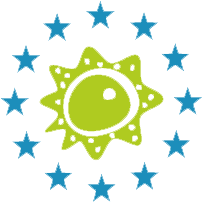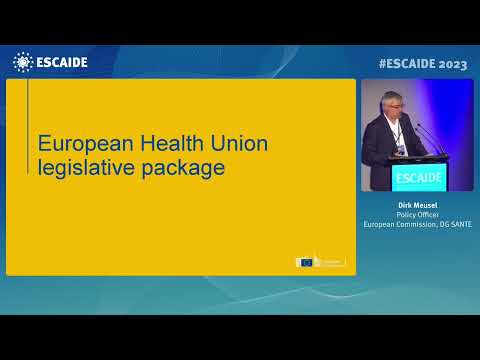New initiatives on integrated surveillance under the European Health Union and the serious cross border health threats regulation
The session explores the implementation of the EU Regulation 2022/2371, from 26 December 2022, which addresses serious cross-border health threats.
Background
As part of the European Health Union package, the EU Regulation 2022/2371 on serious cross-border threats to health has entered into force on 26 December 2022. Chapter III (Articles 13-17) of this Regulation provide new provisions for Epidemiological surveillance, the Digital platform for surveillance, and EU reference laboratories. Several Implementing Acts are currently in preparation, which will define in more detail the concrete implementation of these provisions, such as the list of communicable diseases, case definitions, procedures for the operation of the epidemiological network for epidemiological surveillance, the specifications of the digital platform for surveillance and its specific rules for functioning, as well as to designate EU reference laboratories.
Via the EU4Health Programme, the European Commission is furthermore providing funding for Integrated Surveillance, Surveillance capacity building.
Objective of the Session
The presentations will inform on
-
the current state of implementation, on the results of the preparatory works carried out so far as well as on an outlook to the short and longer term plans for the implementation of the regulation on serious cross-border threats to health.
-
the Strategies for a fit for purpose surveillance in Europe and the ECDC long-term surveillance framework
-
the Joint Action UNITED4Surveillance current work as well as first preliminary results
Furthermore, it will inform on funding mechanism for the improvement of EU Surveillance Systems as one of the central lessons learnt from the COVID-19 pandemic.
Conclusion
The COVID-19 pandemic has clearly illustrated that the creation and further development of sound, reliable, integrated and real-time digital surveillance systems are a very crucial component for preparedness against serious cross border health threats. The current work under the new regulation is a considerable opportunity to do such improvements at EU, national and regional level.
Date and time
Thursday 23 November; 12:35-13:35
Moderator
Dr Dirk Meusel
Dirk Meusel has a scientific background in social science research, with a doctorate in Public Health and Health Information. He has been working for the European Commission since 2009. Since 2021, he has worked for the DG SANTE in the Health Security Unit as a Policy Officer responsible for Epidemiological Surveillance and the Health Security Committee.
Speakers
Dr Eelco Franz
Eelco Franz is Head of the Department for Epidemiology and Surveillance of Enteric, Vector-borne and Zoonotic infections. His department is responsible for national surveillance, outbreak investigation and epidemiological research on transmission routes and risk factors. He initiated the transition towards whole-genome sequencing-based surveillance and the data-sharing between public health and food safety authority. He functions as the ECDC national focal point for food- and waterborne disease and for emerging and vector-borne diseases. Currently he is coordinating the European Joint Action UNITED4Surveillance. In addition, he has served and is currently serving in various WHO, FAO and ECDC working groups and advisory committees.
Roan Pijnacker
Roan Pijnacker is a senior epidemiologist working in the department of Epidemiology and surveillance of enteric, vector-borne, and zoonotic infections at the RIVM. His expertise lies in surveillance and research of enteric pathogens, particularly with the use of whole-genome sequencing data. He is responsible for coordinating outbreak investigation, together with other national and international partners, with the aim of identifying the source of enteric foodborne outbreaks in humans. He is involved in multiple national and international projects that aim to improve our ability to detect outbreaks of (mainly foodborne) pathogens and enhance source-tracing in a One Health setting.
Sara Marie Bergh-Hanssen
Sara Marie Bergh-Hanssen is a Project Coordination Officer working at Statens Serum Institut (SSI), Department of Data Integration & Analysis, where she is involved in national and international projects, including Work Package 2 of UNITED4Surveillance. The Department of Data Integration and Analysis works to systematise, link and analyse national infectious disease data to ensure continuous surveillance of infectious diseases.
Paulina vom Felde genannt Imbusch
Paulina vom Felde genannt Imbusch is a Project Coordinator working in the Department of Infectious Disease Epidemiology and Unit of Surveillance at Robert Koch Institute (RKI), where she is currently involved in Work Package 2, “Outbreak Detection” of UNITED4Surveillance. The Department of Infectious Disease Epidemiology is responsible for the collection, analysis and epidemiological assessment of data communicated to the RKI according to the infection protection act.
Dr Carlos Carvalho
Carlos Carvalho is a medical doctor, qualified in public health and field epidemiology, working at ECDC since 2020 at the Surveillance Section of the Public Health Functions Unit. As a principal expert digital surveillance, he has been focusing on the use of electronic health records for surveillance of infectious diseases. Prior to joining ECDC, Carlos worked for 10 years in public health in Portugal, at the local, regional, and national levels, focusing mostly on TB surveillance.


